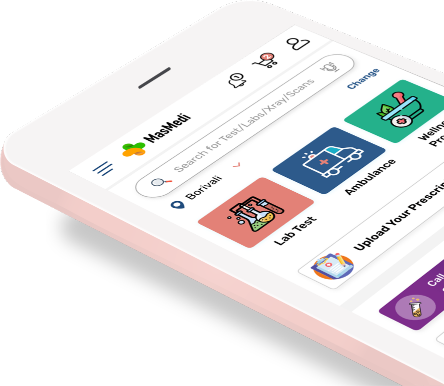Gender
Age Group
Male/Female
All Age Group
Bilirubin Total:-Bilirubin (bil-ih-ROO-bin) is a yellowish pigment that is made during the normal breakdown of red blood cells. Bilirubin passes through the liver and is eventually excreted out of the body. Higher than normal levels of bilirubin may indicate different types of liver or bile duct problems. Bilirubin Direct:-Elevated levels may indicate liver damage or disease. Higher than normal levels of direct bilirubin in your blood may indicate your liver isnt clearing bilirubin properly. Elevated levels of indirect bilirubin may indicate other problems.Bilirubin Indirect :- Elevated levels may indicate liver damage or disease. Higher than normal levels of direct bilirubin in your blood may indicate your liver isnt clearing bilirubin properly. Elevated levels of indirect bilirubin may indicate other problems. SGOT:-The SGOT test is a blood test thats part of a liver profile. It measures one of two liver enzymes, called serum glutamic-oxaloacetic transaminase. This enzyme is now usually called AST, which stands for aspartate aminotransferase. An SGOT test (or AST test) evaluates how much of the liver enzyme is in the blood. SGPT:-SGPT is a quick test measured through blood samples to monitor the health of your liver. The test can identify the presence of high levels of SGPT enzyme that can be indicative of many conditions such as liver disorders, hepatitis, and jaundice. Protein Total:-A total protein test measures the amount of protein in your blood. Proteins are important for the health and growth of the bodys cells and tissues. The test can help diagnose a number of health conditions, including: kidney disease. Alkaline Phosphatase (ALP):- An alkaline phosphatase (ALP) test measures the amount of ALP in your blood. Although ALP exists throughout your body, the two main sources of ALP in your blood are your liver and bones. High levels of ALP may indicate liver disease or certain bone disorders, but an ALP test alone cannot diagnose a condition. Globulin:- Globulins are a group of proteins in your blood. They are made in your liver by your immune system. Globulins play an important role in liver function, blood clotting, and fighting infection. There are different types of globulins called alpha, beta, and gamma globulins. Albumin/Globulin Ratio:- Several recent studies have found that serum albumin/globulin ratio (AGR) can predict the prognosis of various diseases, including cancers, chronic kidney disease, heart failure, and peritoneal dialysis (1721).
Liver Profile (LFT) includes 10 Test(s)
best labs
Option Near Youlab comparison
As per your budgetAffordable
Price GuaranteedUNBIASED ADVICE
On LabsSUNDAY LAB
Labs available on SundaysTracking health status made easy with the app. Now available on both Google Play Store and App Store. Book health tests and access your smart reports and health trackers anytime anywhere.
